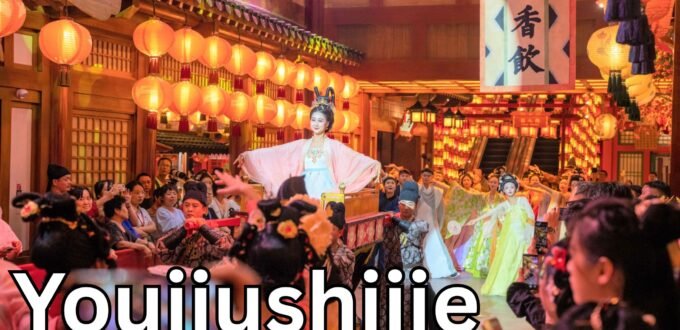Introduction
The term “Youjiushijie” (有旧世界), often translated as Old World, carries deep cultural, historical, and even modern digital significance. Whether used in literature, gaming, or philosophy, it reflects a world that existed before transformation—a reminder of traditions, roots, and heritage. In this article, we will explore the origins of Youjiushijie, how it appears across different contexts, and why it matters today in an increasingly fast-changing society.
What Does “Youjiushijie” Mean?
- Literal meaning: “You” (有) means to have, “jiu” (旧) means old, and “shijie” (世界) means world. Together, it represents the Old World or a world of the past.
- Philosophical meaning: It can symbolize history, memory, and the wisdom of past civilizations.
- Modern interpretation: In online communities and digital spaces, “Youjiushijie” can also refer to games, forums, or creative projects themed around nostalgia and old traditions.
Historical and Cultural Relevance
- Connection to History
The Old World often refers to Asia, Europe, and Africa before the Age of Exploration. In Chinese thought, it may reflect dynastic cycles, heritage, and respect for ancestors. - Youjiushijie in Literature
Authors use the concept to contrast old traditions with new modern realities. It serves as a reminder that cultural progress always emerges from an earlier foundation. - Symbolism in Philosophy
The term reflects cycles of change—acknowledging that every “new world” begins by transforming an “old world.”
Youjiushijie in the Modern Digital Era
- Gaming and Entertainment
Some games and fantasy novels adopt Youjiushijie as a theme, depicting ancient realms or pre-modern civilizations. Players often explore ruins, legends, and lost histories. - Online Communities
In forums and creative platforms, “Youjiushijie” symbolizes nostalgia, retro culture, and connections to earlier internet eras. - Personal Growth
On a personal level, embracing Youjiushijie means respecting the past while building toward the future. It is a mindset that values tradition yet adapts to change.
Why “Youjiushijie” Still Matters Today
- Identity and Roots: It helps individuals and cultures remember where they come from.
- Balance Between Old and New: In fast-paced technology-driven societies, it reminds us to preserve traditions while innovating.
- Global Relevance: Across languages, the concept of an old world resonates universally, making Youjiushijie an idea that bridges cultures.
Conclusion
“Youjiushijie” is more than just a phrase—it is a bridge between past and present. From history and literature to games and digital culture, it represents memory, tradition, and the foundation of the modern world. In today’s society, where rapid change dominates, reflecting on Youjiushijie helps us maintain balance: honoring the old while embracing the new.
FAQs
1. What is the literal translation of Youjiushijie?
It means the Old World, combining the Chinese words for “have,” “old,” and “world.”
2. Where is Youjiushijie used?
It appears in literature, history, gaming culture, and online creative communities.
3. Is Youjiushijie related to history?
Yes. It often refers to past civilizations, traditions, and the world before modern transformation.
4. How is Youjiushijie relevant today?
It symbolizes nostalgia, tradition, and the importance of learning from the past while moving forward.
5. Can Youjiushijie be used in gaming or creative writing?
Absolutely. Many games, fantasy stories, and digital projects use the concept to create immersive “old world” settings.










